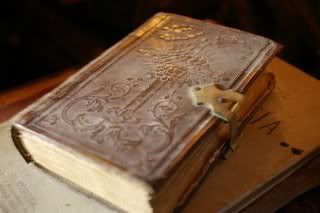
I'd never heard of this book before a kid checked it out from my library. It looked interesting, considering my library's severe lack of GLBT anything, so I decided to put in on hold for myself. The kid took forever to bring it back, so I forgot about it, but it came back in a few weeks ago. I had it with me in my bag when I was babysitting. The kid I was sitting was engrossed in some creepy Disney Channel show, so I was bored. I had originally planned on reading another book next, but this was all I had handy, so I read it anyway.
It's a sort of day-in-the-life type narrative of this gay high schooler named Paul. He has boy troubles, family troubles, best friend turns into a bitch troubles, plans a school dance, does his homework, learns a bit about himself. That sort of thing.
At first I pretty much hated it. The plot is simple (as the title indicates), and there was just too much too-good-to-be-true gay stuff. Like, the boy scouts changed to the pride scouts because boy scouts don't include gays, the PFLAG is bigger and more involved than the PTA, and everywhere you look another character is gay. It sort of reminded me of the worst kind of fanfiction where it's like "Oh my, Harry's gone and slept with the entire Slytherin Quidditch team! He'll have to move on to the Ravenclaw team now. I hear that Roger Davies can handle a quaffle if you know what I mean." Anyone? Just me? Ok anyway, the point is that everyone does not need to be gay in order to make gay literature significant! I think it'd actually be much more effective if the world in the book was more realistic, instead of taking place in a superopenminded town where one kid's parents are religious and conservative and everyone else in town sports a rainbow bumper sticker. Maybe I'm just too used to the south, where the opposite is the norm?
To be fair, it does seem like lots of times gay people are mostly friends with gay people, so that could be why almost all of the characters in the book were gay. I dunno.
Anyway, I was real pissed this was the only book I had with me, but since this was the case, I kept reading it. And it really ended up sucking me in. Those things I said up there still bothered me, but Levithan was really extravagantly good at creating interesting, believable characters, despite the unbelievable setting he put them in. The main character in this book (Paul) looks at certain aspects of life the same way I do, and this is something I do not think I have ever seen so accurately described before, by anyone I know or in any book I have read. By this I mean, mostly, the importance of the moment. The tiny details that make a space of time meaningful. Paul is always describing the actions of people in this poetic way where he interprets them and their many reasons for doing what they do. He notes the subtlety of body language and knows what people mean between the words they don't say, talks about objects holding secrets, stories being tangible things, and understands the weight of the important balance of old love and new love. So basically his mind is analyzing everyone around him in the same way I do, and describes it better than I've ever been able to describe it. So for that I really liked the book.
It wasn't excessively campy, with dumb stereotypical gayness all over it. There was some camp, but it was in the background. I liked the universality of the feelings the characters felt, that it put forth that love is love and homosexual love isn't different in either a worse or better way than hetero love. The honest emotions and beautiful simplicity of the love story made up for the implausible setting, but dammit, the book would have been a 10 if the setting were more realistic. Also, the last few lines of this book were kind of too feelingsy for me, so that's gonna cost it some points. All in all, it was like a more gay and less lame version of The Perks of Being a Wallflower. Although, to be honest, I loved the hell out of Perks back in the day.
Anyway, I finished this forever ago. This seems to be a theme. It is looking like, with my current schedule, I will not make it to 50 books this year. I'll keep trying, though.
Pages: 185
Time: Feb 10-Feb 12.
Rating: I dunno, 8.75 for characterization and style and 5 for what were you thinking with that unrealistic background noise?



